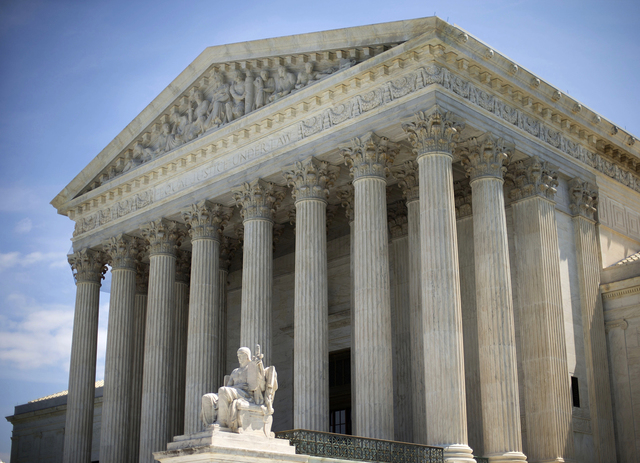WASHINGTON — A unanimous Supreme Court on Tuesday sided with the government in a legal clash over the nation’s insider trading laws, a victory for prosecutors seeking to curb corruption on Wall Street. ADVERTISING WASHINGTON — A unanimous Supreme Court
WASHINGTON — A unanimous Supreme Court on Tuesday sided with the government in a legal clash over the nation’s insider trading laws, a victory for prosecutors seeking to curb corruption on Wall Street.
The justices ruled that sharing corporate secrets with friends or relatives is illegal even if the insider providing the tip doesn’t receive anything of value in return.
The ruling upheld the conviction of Bassam Yacoub Salman, an Illinois man convicted of making investments based on inside information he received from a member of his extended family. It also limited the impact of a 2014 ruling from the federal appeals court in Manhattan that had raised doubts about the scope of insider trading laws.
Prosecutors have relied on a broad reading of the law to support aggressive anti-corruption efforts that have netted more than 80 arrests and 70 convictions for insider trading over several years.
Writing for the court, Justice Samuel Alito rejected arguments that insider trading prosecutions should be limited to those who make secret profits from revealing confidential data. Government officials had argued that sharing corporate secrets with friends or family is just as damaging to the integrity of financial markets.
Salman was prosecuted for earning more than $1.5 million in profits from trading on nonpublic information he received about future health care deals. The tip originated with Salman’s brother-in-law, Maher Kara, an investment banker at Citigroup Global Markets in New York. Kara passed the tip on to his own brother, Michael Kara, who then gave it to Salman.
Salman was aware that Maher Kara was the source. Kara pleaded guilty to conspiracy and securities fraud charges.
“Salman’s jury was properly instructed that a personal benefit includes the benefit one would obtain from simply making a gift of confidential information to a trading relative,” Alito said.
Alito said that Maher Kara disclosed confidential information as a gift to his brother with the expectation that his brother would trade on it. That was a breach of his duty of trust to Citigroup, Alito said, and that breach of duty continued when Salman received the information and traded on it.
Prosecutors had suffered a blow two years ago when the federal appeals court in Manhattan overturned the conviction of hedge fund managers Todd Newman and Anthony Chiasson after finding they were too far removed from inside information to be prosecuted.
The Manhattan court said Newman and Chiasson got their information through a chain of traders who didn’t have a close personal relationship with them. The ruling forced Manhattan U.S. Attorney Preet Bharara to drop some cases and put others on hold.
Alito specifically noted the Manhattan ruling and rejected any notion that an insider doesn’t violate the law unless he receives something of value when giving confidential information to a friend or relative.
Bharara said in a statement that the Supreme Court “easily” rejected the Manhattan court’s “novel interpretation of insider trading laws.”
“The Court stood up for common sense and affirmed what we have been arguing from the outset — that the law absolutely prohibits insiders from advantaging their friends and relatives at the expense of the trading public,” Bharara said. “Today’s decision is a victory for fair markets and those who believe that the system should not be rigged.”
The ruling is likely to affect high-profile hedge fund manager Leon Cooperman, who earlier this year was accused by federal regulators of illegally trading on confidential information he learned from a company executive. Cooperman had told his investors in a letter that federal prosecutors were holding off on pursuing charges until the Supreme Court ruled in the Salman case.



